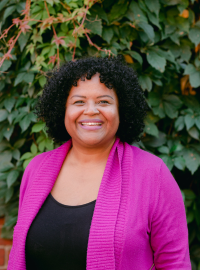Course information for - 2026 entry
International
- Domestic
- International
- Domestic
- International
Offered at 2 locations
- Melbourne
- Strathfield
- Melbourne
- Strathfield
- Duration
- 1 year full-time or equivalent part-time
- CRICOS Code
- 093165J
- Fees (first year)*
- $35624
- Start dates
- February 2026, July 2026, February 2027, July 2027, February 2028, July 2028
Overview

The Diploma in Educational Studies (Tertiary Preparation) is designed for domestic and international students who want to undertake a pre-service teacher degree in Early Childhood, Primary, or Secondary education but do not meet the admission rank for a Bachelor’s program and/or do not meet the required Science/English/Maths subject prerequisites in QLD and/or VIC for their desired pre-service teaching degree. By completing this pathway course, students may then be eligible to enter the relevant Bachelor degree with credit.
Students can select the required prerequisite units, as well as units from the first year of the relevant pre-service teacher degree courses. Once you successfully transfer, students can gain formal recognition for the relevant pre-service teacher units successfully completed that are beyond the stated prerequisite requirements.
The Diploma in Educational Studies (Tertiary Preparation) is also available by direct entry application to Aboriginal and Torres Strait Islander students in Away From Base mode. Early Childhood and Primary units only available in this study mode.
Careers
Our graduates have pursued careers in:
- Working opportunities in school settings, but this is not a teaching qualification.
- Teaching assistance
Course details
Course structure
To complete the Diploma in Educational Studies (Tertiary Preparation), a student must complete 80 credit points (cp).
Course map
Graduate statement
AQF framework
Exit Points
A student who has completed 40 credit points from units prescribed for the Non-Award Certificate in Educational Studies may exit with that award.
Entry requirements
An applicant must also comply with the Admission to Coursework Programs Policy.
To be eligible for admission to the course, an applicant must have completed:
a. Year 12 with the ACU minimum eligibility rank for Diploma programs; or
b. Entry via an alternative pathway as approved for ACU; or
c. Aboriginal and/or Torres Strait Islander applicants may be selected following an interview with the course coordinator and staff of the campus Indigenous Higher Education Unit. An applicant should have:
- Minimum of three years’ work experience; or
- Year 12 or equivalent; or
- Relevant tertiary study skills or successful completion of a Tertiary Communication Skills program.
International students need to meet the English Language Proficiency requirements as defined in the Admission to Coursework Programs Policy.
Disclaimer: The course entry requirements above are for 2026 Admission.
View transparency admission information
International applicants
If you’re an international applicant you’ll need the equivalent of an Australian Year 12 Certificate.
Find the equivalent qualification for your country
You’ll also need to comply with the Admission to Coursework Programs Policy, including the English Language Proficiency requirements.
If you’re an international student completing one of the following qualifications, you will need to apply for admission through your local Tertiary Admission Centre (TAC) and be assessed on your performance in these studies (i.e. your ATAR or equivalent):
an Australian Year 12 qualification (either outside or in Australia)
an International Baccalaureate (IB) Diploma
a New Zealand National Certificate of Educational Achievement (NCEA) Level 3.
English language requirements
A minimum of 7.0 in reading and writing and a minimum of 7.5 in listening and speaking.
Inherent requirement
There are essential components of a course or unit that demonstrate the capabilities, knowledge and skills to achieve the core learning outcomes of that course or unit. You will need to be able to meet these inherent requirements to complete your course.
Learn more about inherent requirements for your course and how they affect you
Pathways
Further study
Depending on the units undertaken, on successful completion of this course students may be eligible for admission to the Bachelor of Education (Primary), the Bachelor Early Childhood Education (Birth to Five Years), the Bachelor of Education (Early Childhood and Primary) or the Bachelor of Education (Secondary).
Fees
Course costs
- Unit fee: $4453
- Average first year fee: $35624
- Estimate total cost: $35624
The Tuition fees quoted above are for commencing students in the current year who undertake a normal full-time load. The Unit Fee is based on a 10cp unit. Fees are reviewed annually.
Tuition fees for continuing students may increase by up to 3 percent each year for the minimum duration of the course as provided on your electronic Confirmation of Enrolment (eCOE). Students who continue to study beyond the minimum duration will have the relevant annual commencing rate applied to their fees for subsequent study periods.
Payment options
You should be able to concentrate on getting good marks instead of worrying about how you’ll pay your fees. We have a number of options that can help you ease the financial burden, including government assistance, scholarships and income support.
Scholarships
You could be eligible for one of the hundreds of scholarships we award each year to help students from across the university with the cost of studying, accommodation or overseas study opportunities. Some of our scholarships are awarded on the basis of merit, but these aren’t just for the academically gifted; ACU also recognises excellence in community engagement and leadership. We also offer a range of scholarships for those who may be struggling financially or who have faced other barriers to accessing education.
How to apply
International applicants
Deferment
Yes. See Defer your offer.
Students with a Student Visa will need to complete the program in minimum duration, study at least one subject on-campus each semester and must not undertake more than 33% of the program online.
Staff Profile
Dr Lily-claire Deenmamode
National Course Coordinator Pathway programs, School of Education
Originally from Mauritius, Dr Lily-claire Deenmamode joined the Australian Catholic University in 2012 as a doctoral student in Education. She is currently a lecturer in the School of Education teaching Indigenous Knowledges' and Sociology of Education and is the National Course Coordinator for the Pathway programs. Her research interests include the promotion of cultural identity and the enhancement of social justice in & through education. Dr Deenmamode continues to explore how inclusive education reframed within a social justice perspective has the potential to challenge marginalisation, disadvantage and non-recognition.

